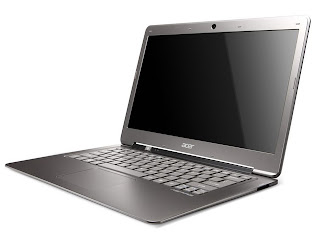 A report surfaced recently about a vulnerability in Facebook that allowed people to access someone else's account. The report initially stated that this vulnerability only affected people on a jailbroken iPhone, however, that doesn't seem to be the case anymore as two new reports are stating that it isn't only jailbroken phones that are at risk.
A report surfaced recently about a vulnerability in Facebook that allowed people to access someone else's account. The report initially stated that this vulnerability only affected people on a jailbroken iPhone, however, that doesn't seem to be the case anymore as two new reports are stating that it isn't only jailbroken phones that are at risk.Gareth Wright, an app developer from the U.K., along with The Next Web have each confirmed, separately, that this new vulnerability affects any and all iPhones, not just jailbroken ones. In addition to that, it has been discovered that the vulnerability originated in Facebook's iPhone app.
Wright released his report earlier in the week and claimed that the iPhone Facebook app includes a vulnerability that fails to encrypt log-on credentials whenever you get on Facebook on your iPhone via the app. Wright also said that he also discovered a Facebook access token in the Draw Something game. Wright copied the token, used the Facebook Query Language and extracted the information.
According to Wright's report, "Sure enough, I could pull back pretty much any information from my Facebook account." Wright also mentioned that the property list of the app contained any and all information needed to allow someone other than you to access your Facebook account, send private messages and do anything else imaginable.
However, Facebook is sticking by their claim that the vulnerability only affects jailbroken phones. In a statement from the social media giant, the company said, "Facebook's iOS and Android applications are only intended for use with the manufacture provided operating system, and access tokens are only vulnerable if they have modified their mobile OS (i.e. jailbroken iOS or modded Android) or have granted a malicious actor access to the physical device."
That may have been believable had The Next Web not released their very own report separate from Wright's. The Next Web confirmed themselves that the vulnerability also affects non-jailbroken phones. However, The Next Web also found that Dropbox also suffers from the same vulnerability, leaving the application open to a property list hack.
According to The Next Web, "We copied the .plist from one device, with the app installed and logged in, over to another which had a fresh installation of Dropbox on it. The profile copied and it worked seamlessly, as if we had logged on ourselves, which we had not." The Next Web also added that the Dropbox vulnerability works on phones that are passcode protected.
Facebook keeps saying that the vulnerability is only on jailbroken phones, though with the reports from Wright and The Next Web, I don't know how much longer the social media company can keep that story going.
Source: CNET - facebook ID theft impacts all iPhones, Dropbox
 In recent news it has been discovered that AOL has decommissioned nearly 10,000 servers, saving the company almost $5 million on its way to winning a competition that highlights the cost of running inefficient or underutilized IT equipment.
In recent news it has been discovered that AOL has decommissioned nearly 10,000 servers, saving the company almost $5 million on its way to winning a competition that highlights the cost of running inefficient or underutilized IT equipment. Mozilla just announced that it is about to begin supporting the H.264 video codec, a move the company has said goes against its better judgment. Mozilla suggested that it had been forced into this decision, which is patent laden, and also assured users and developers that it would continue to offer its software free of charge as it currently does.
Mozilla just announced that it is about to begin supporting the H.264 video codec, a move the company has said goes against its better judgment. Mozilla suggested that it had been forced into this decision, which is patent laden, and also assured users and developers that it would continue to offer its software free of charge as it currently does. At this year's South by Southwest conference Metadot Corporation unveiled their very retro keyboard known as the DasKeyboard (German for "The Keyboard"?). Basically, what this device aims to do is bring back the touch and feel of typing on one of those old IBM Selectric typewriters. In fact, Metadot Corporation wanted to let users know just how retro the DasKeyboard feels by having a few of those old IBM Selectric typewriters at their South by Southwest booth.
At this year's South by Southwest conference Metadot Corporation unveiled their very retro keyboard known as the DasKeyboard (German for "The Keyboard"?). Basically, what this device aims to do is bring back the touch and feel of typing on one of those old IBM Selectric typewriters. In fact, Metadot Corporation wanted to let users know just how retro the DasKeyboard feels by having a few of those old IBM Selectric typewriters at their South by Southwest booth.
 According to multiple reports and sources, suppliers of ultrabooks are facing a lot of issues with profitability and market. As a result, many manufacturers are expected to turn to low-cost designs to make up for it. According to an anonymous CNET source that speaks directly to ultrabook suppliers, "The ultrabook adoption during the holiday season was ugly." Before you go jumping to conclusions, this source was only talking about one ultrabook manufacturer specifically.
According to multiple reports and sources, suppliers of ultrabooks are facing a lot of issues with profitability and market. As a result, many manufacturers are expected to turn to low-cost designs to make up for it. According to an anonymous CNET source that speaks directly to ultrabook suppliers, "The ultrabook adoption during the holiday season was ugly." Before you go jumping to conclusions, this source was only talking about one ultrabook manufacturer specifically.
 Windows 8 will be coming soon (we hope) and the tech world is in a frenzy. Windows 7 was one of the best operating systems released by Microsoft and was a much welcomed change over its previous iteration, Windows Vista. Naturally, Microsoft will be making a few changes here and there to the operating system but one that may catch people off guard is that Microsoft may be making a change to the number of editions, or SKUs, that will be sold to the public.
Windows 8 will be coming soon (we hope) and the tech world is in a frenzy. Windows 7 was one of the best operating systems released by Microsoft and was a much welcomed change over its previous iteration, Windows Vista. Naturally, Microsoft will be making a few changes here and there to the operating system but one that may catch people off guard is that Microsoft may be making a change to the number of editions, or SKUs, that will be sold to the public.